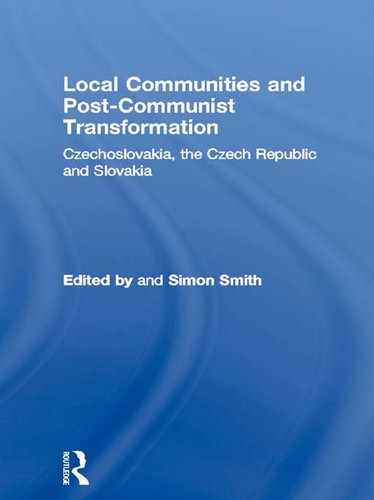0%
21Chapters
0-1Hours read
0kTotal Words
Book Description
Post-communist transformation in the former Soviet bloc has had a profound effect, not just in the political and economic sphere, but on all aspects of life. Although a great deal has been written about transformation, much of it has been about transformation viewed from the top, and little has been written about how things have changed for ordinary people at the local level.This book, based on extensive original research, examines the changes resulting from transformation at the local level in the form Czechoslovakia. It considers especially local democracy, social movements, and work collectives, and paints a picture of people gradually growing in self-confidence and taking more control of their communities, having lived for decades in a framework where so much was directed from the top.
Table of Contents
- Cover
- Half Title
- Full Title
- Copyright
- Contents
- List of tables
- Notes on contributors
- Preface
- Acknowledgements
- 1 Transformation as modernisation: sociological readings of post-communist lifeworlds
- 2 Civil society and political parties in the Czech Republic
- 3 Civic Forum and Public Against Violence: agents for community self-determination? Experiences of local actors
- 4 The development of the environmental non-governmental movement in Slovakia: the Slovak Union of Nature and Landscape Conservationists
- 5 Dual identity and/or ‘bread and butter’: electronics industry workers in Slovakia 1995–2000
- 6 The democratisation of industrial relations in the Czech Republic — work organisation and employee representation: case studies from the electronics industry
- 7 Local community transformation: the Czech Republic 1990–2000
- 8 Civic potential as a differentiating factor in the development of local communities
- 9 Group strategies of local communities in Slovakia facing social threats
- 10 Conclusion: the narrativisation of social transformation
- Index
